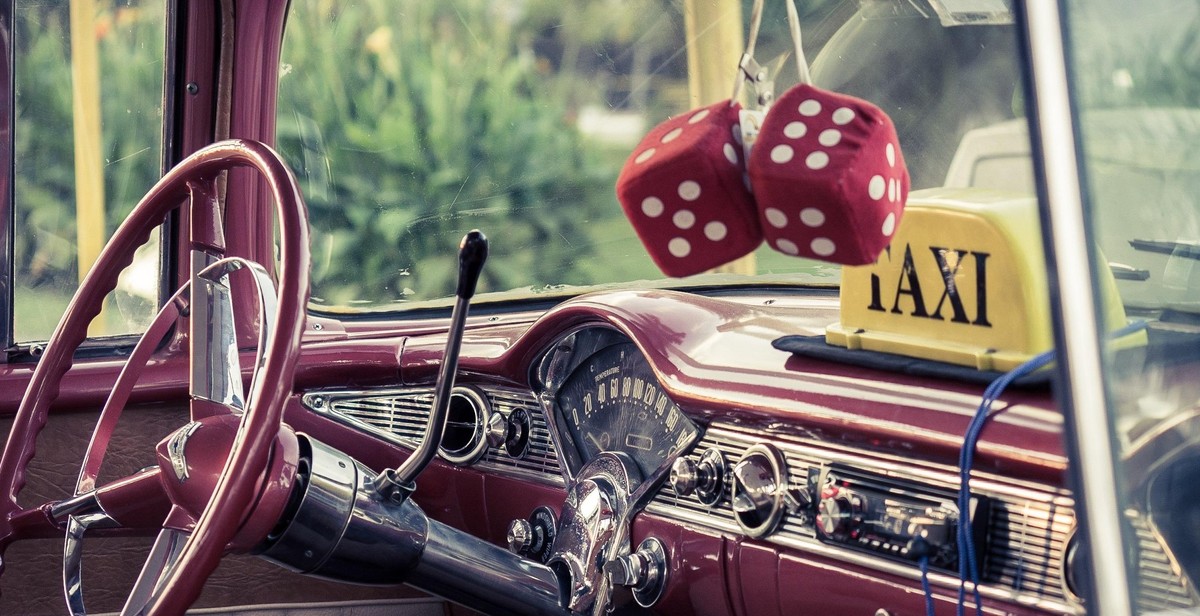How to Prevent and Treat Common Oldtimer Car Engine Issues
Oldtimer cars are a special type of vehicle that requires extra care and attention. These classic cars are not only valuable but also hold a special place in the hearts of their owners. However, as they age, oldtimer cars are prone to developing engine issues. These problems can be frustrating and costly, but with proper maintenance and care, they can be prevented or treated.
Prevention is Key
The best way to avoid engine issues in oldtimer cars is to prevent them from happening in the first place. Regular maintenance is crucial to keep the engine running smoothly. This includes oil changes, checking and replacing filters, and ensuring the coolant system is working correctly. It is also essential to keep an eye on the engine’s performance and address any issues promptly.
Common Oldtimer Car Engine Issues
Despite proper maintenance, oldtimer cars can still develop engine issues. Here are some of the most common problems:
- Overheating
- Low oil pressure
- Starter motor failure
- Ignition system issues
- Valve problems
Treatment Options
If your oldtimer car is experiencing engine problems, there are several treatment options available. The first step is to identify the issue and determine the best course of action. In some cases, a simple repair may be enough, while in other cases, a complete engine rebuild may be necessary. It is essential to work with a qualified mechanic who has experience working on oldtimer cars to ensure the problem is correctly diagnosed and treated.
By following these tips, you can keep your oldtimer car running smoothly and avoid costly engine issues. Regular maintenance, prompt attention to problems, and working with a qualified mechanic are all key to keeping your classic car on the road.
Preventive Maintenance
Preventive maintenance is key to keeping your oldtimer car engine running smoothly and avoiding common issues. Here are some essential maintenance tasks you should perform regularly:
Regular Oil Changes
Oil is the lifeblood of your engine, and regular oil changes are essential for maintaining its health. Over time, oil can become contaminated with dirt and debris, which can cause damage to your engine. To prevent this, you should change your oil every 3,000 to 5,000 miles, or as recommended by your car’s manufacturer.
When changing your oil, be sure to use the right type of oil for your engine. Check your car’s manual for the recommended viscosity and type of oil. Using the wrong type of oil can cause engine damage and reduce performance.
Cooling System Maintenance
Your car’s cooling system is essential for preventing your engine from overheating. To keep it functioning properly, you should perform regular maintenance, including:
- Checking the coolant level and adding more if necessary
- Flushing the system and replacing the coolant every two years
- Replacing the thermostat if it’s not working properly
- Inspecting the radiator and water pump for leaks or damage
Fuel System Cleaning
A dirty fuel system can cause a range of engine problems, including poor performance, reduced fuel efficiency, and even engine damage. To keep your fuel system clean, you should:
- Use high-quality fuel and avoid filling up at gas stations that have dirty pumps or tanks
- Replace your fuel filter every 12,000 miles or as recommended by your car’s manufacturer
- Use a fuel system cleaner every 30,000 miles or as recommended by your car’s manufacturer
| Preventive Maintenance Tasks | Frequency |
|---|---|
| Oil Changes | Every 3,000 to 5,000 miles or as recommended by your car’s manufacturer |
| Cooling System Maintenance | Regularly check coolant level, flush system every two years, replace thermostat if necessary, inspect radiator and water pump for leaks or damage |
| Fuel System Cleaning | Use high-quality fuel, replace fuel filter every 12,000 miles, use a fuel system cleaner every 30,000 miles or as recommended by your car’s manufacturer |

Common Engine Issues
Oldtimer car engines are prone to certain issues that can cause significant damage if left untreated. Here are some of the most common engine issues and how to prevent and treat them:
Overheating
Overheating is a common issue in oldtimer car engines. It can be caused by a variety of factors, including a malfunctioning thermostat, a clogged radiator, or a leaking coolant system. If your engine is overheating, you should immediately stop driving and allow it to cool down before attempting to diagnose the problem.
To prevent overheating, it is important to regularly check your coolant levels and ensure that your radiator is clean and free of debris. You should also have your thermostat checked and replaced if necessary.
Low Oil Pressure
Low oil pressure can cause significant damage to your engine if left untreated. It can be caused by a variety of factors, including a clogged oil filter, a malfunctioning oil pump, or low oil levels. If you notice that your oil pressure gauge is showing low pressure, you should immediately stop driving and check your oil levels.
To prevent low oil pressure, it is important to regularly check your oil levels and change your oil and oil filter at the recommended intervals. You should also have your oil pump checked and replaced if necessary.
Misfiring
Misfiring can cause your engine to run rough and can lead to significant damage if left untreated. It can be caused by a variety of factors, including faulty spark plugs, a malfunctioning ignition coil, or a clogged fuel injector. If you notice that your engine is misfiring, you should immediately have it diagnosed and repaired.
To prevent misfiring, it is important to regularly check and replace your spark plugs and ignition coils at the recommended intervals. You should also have your fuel injectors cleaned and serviced regularly.
| Common Engine Issues | Causes | Prevention |
|---|---|---|
| Overheating | Malfunctioning thermostat, clogged radiator, leaking coolant system | Regularly check coolant levels, ensure radiator is clean, have thermostat checked |
| Low Oil Pressure | Clogged oil filter, malfunctioning oil pump, low oil levels | Regularly check oil levels, change oil and oil filter at recommended intervals, have oil pump checked |
| Misfiring | Faulty spark plugs, malfunctioning ignition coil, clogged fuel injector | Regularly check and replace spark plugs and ignition coils, have fuel injectors cleaned and serviced |
Treatment
Prevention is always better than cure, but sometimes, even with the best preventive measures, oldtimer car engine issues can still occur. In this section, we will discuss some of the most common oldtimer car engine issues and how to treat them effectively.
Engine Flush
One of the most common issues with oldtimer car engines is the buildup of dirt, debris, and sludge over time. This can lead to poor engine performance, reduced fuel efficiency, and even engine failure. An engine flush is a process that involves adding a special cleaning solution to the engine oil to break down and remove the buildup of dirt and debris.
Engine flushes should only be performed by a professional mechanic, as using the wrong cleaning solution or performing the process incorrectly can cause damage to the engine. However, when done correctly, an engine flush can help to restore the engine’s performance and prolong its lifespan.
Replacing Faulty Parts
Another common issue with oldtimer car engines is faulty or worn-out parts. This can include everything from spark plugs and ignition coils to belts and hoses. If left untreated, these issues can lead to engine failure and costly repairs.
When a faulty part is identified, it is important to have it replaced as soon as possible. This will help to prevent further damage to the engine and ensure that it continues to operate smoothly. Replacement parts should always be high-quality and installed by a professional mechanic.
Rebuilding the Engine
In some cases, oldtimer car engines may require more extensive treatment, such as a complete engine rebuild. This is often necessary when the engine has suffered significant damage or has reached the end of its lifespan.
Engine rebuilds involve disassembling the engine, inspecting each component, and replacing any parts that are worn or damaged. The engine is then reassembled and tested to ensure that it is operating correctly.
Engine rebuilds are a complex and time-consuming process that should only be performed by a professional mechanic with experience in oldtimer car engines. However, when done correctly, an engine rebuild can help to restore the engine’s performance and extend its lifespan for many years to come.

Conclusion
Oldtimer cars are a fascinating piece of history that requires special care and attention. Engine issues are common among oldtimer cars, but with proper maintenance and preventive measures, you can keep your car running smoothly.
Taking Care of Your Engine
Regular maintenance and tune-ups are critical for keeping your oldtimer car’s engine running smoothly. Pay attention to oil changes, spark plugs, and air filters. If you notice any unusual sounds or smells coming from your engine, have it checked out by a professional mechanic immediately.
Preventing Engine Issues
Prevention is always better than cure. To prevent engine issues, avoid overloading your car, use high-quality fuel, and keep an eye on the temperature gauge. Store your car in a dry and cool place, and use a car cover to protect it from dust and debris.
Treating Engine Issues
If you do encounter engine issues, don’t panic. Consult a professional mechanic who specializes in oldtimer cars. They will diagnose the problem and recommend the best course of action. In some cases, a simple repair or replacement of a part may be all that’s needed to get your engine running smoothly again.
By following these tips, you can prevent and treat common oldtimer car engine issues. Remember, taking care of your car’s engine will ensure that it continues to run smoothly for years to come.
